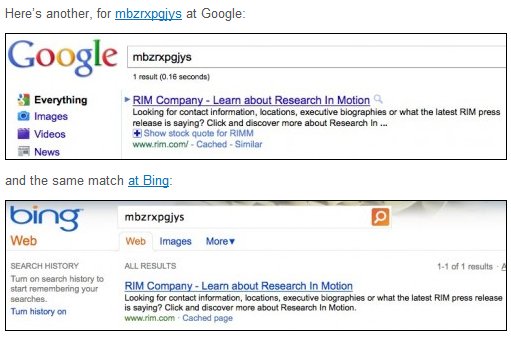
To verify its suspicions, Google set up a sting operation with about 100 "synthetic" search queries that few people would ever enter into Google. When the experiment went live, these search queries found either nothing or a few poor quality results on Google or Bing. Then Google made manual changes to put irrelevant "honeyput" pages on top of these searches, and about two weeks after that, some of these pages began to appear on Bing for these search queries. This strongly suggests Bing is copying some of Google's results by watching what people do at Google via Internet Explorer, and a comment by a Microsoft executive doesn't seem to deny this allegation.
As a result of the apparent monitoring, Bing’s relevancy is potentially improving (or getting worse) on the back of Google’s own work. Google likens it to the digital equivalent of Bing leaning over during an exam and copying off of Google’s test.
“I’ve spent my career in pursuit of a good search engine,” says Amit Singhal, a Google Fellow who oversees the search engine’s ranking algorithm. “I’ve got no problem with a competitor developing an innovative algorithm. But copying is not innovation, in my book.”
Bing doesn’t deny Google’s claim. Indeed, the statement that Stefan Weitz, director of Microsoft’s Bing search engine, emailed me yesterday as I worked on this article seems to confirm the allegation:
As you might imagine, we use multiple signals and approaches when we think about ranking, but like the rest of the players in this industry, we’re not going to go deep and detailed in how we do it. Clearly, the overarching goal is to do a better job determining the intent of the search, so we can guess at the best and most relevant answer to a given query.
Opt-in programs like the [Bing] toolbar help us with clickstream data, one of many input signals we and other search engines use to help rank sites. This “Google experiment” seems like a hack to confuse and manipulate some of these signals.
